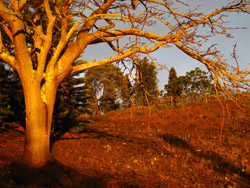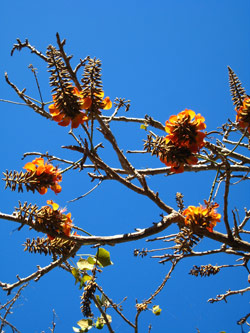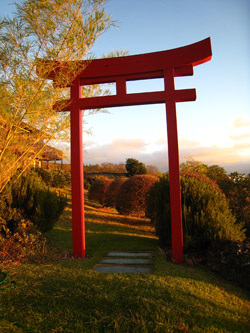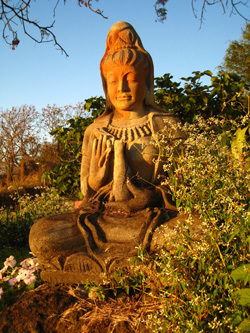 Dāna is the Cultivation of Generosity
Dāna is the Cultivation of Generosity
For over 2,500 years, Dhamma (or Dharma) teachings have been offered on the principle of dāna. Dāna is a word in the ancient Pāļi language which means the act of giving. The Dhamma has been given freely, without charge, for two reasons. First, the teachings are so precious they are considered to be priceless, valuable beyond estimation. Second, without a set charge the Dhamma is accessible to everyone. It was the Buddha’s understanding that the practice of giving ennobles the mind, and makes fertile ground for liberating wisdom to grow and bear the fruit of ineffable freedom. This is because the act of giving cultivates the inner qualities of generosity, loving kindness, compassion and equanimity, the deep joy of sharing with others, the stabilizing feeling of inter-connectedness, and the development of letting go with stronger awareness. These are precious factors in the process of liberation.
Dāna has long been a significant pillar, a spiritual practice, of the growth and sustainability of the Dhamma in Asian countries; now this practice is being honored in the West. In ancient times, when the Buddha offered the Dhamma he began by teaching generosity for the sake of each individual’s deepening in wisdom, and for the sake of the continuation of the teachings throughout time. We are the fortunate heirs of all those who have upheld this wisdom and practice. Through the centuries, the priceless and freely given gift of the Dhamma has been offered by monks, nuns and lay teachers; and the practice of dāna through voluntary gifts of support have been offered by those who felt benefited by the Dhamma. Without this interdependence of mutual support, these precious teachings would not have survived.
Dāna is a mindfulness practice. Mindful awareness brings the act of dāna out of the realm of unconscious habit and into the realm of wise attention. For example, we can become aware of the joy that arises in the heart before giving; we can know the happiness during the actual moment of letting go; and when we remember our past acts of generosity, the mind is filled with a joy that settles into a deep quietness. Because dāna is a ‘practice’ we can also become mindful when we feel the suffering of attachment and the painful part of letting go. Through doing this practice, eventually the heart opens and the mind lets go. In a moment of mindful giving, the heart is filled with the beautiful qualities of non-greed, non-hatred, and non-delusion. As one teacher put it, “practicing dāna is letting go of greed.”
 It is helpful to frequently reflect on the ways generosity benefits the receiver, and at the same time deepens our own practice of compassion and wisdom, which leads step by step to complete liberation. Through helping others, we are also helping ourselves and benefiting the larger community.
It is helpful to frequently reflect on the ways generosity benefits the receiver, and at the same time deepens our own practice of compassion and wisdom, which leads step by step to complete liberation. Through helping others, we are also helping ourselves and benefiting the larger community.
“When I remember my acts of generosity, I shall be glad. When I am glad, I shall be happy. When my mind is happy, my body will be tranquil. When my body is tranquil, I shall feel pleasure. When I feel pleasure, my mind will become concentrated. That will bring about the development of the spiritual faculties, the spiritual powers and the factors of enlightenment.” ~Vishakha, The Buddha’s Chief Patroness
FAQ ABOUT THE PRACTICE OF OFFERING DĀNA TO TEACHERS:
The challenge to all Dhamma teachers who have made their home in the West is to translate this spirit of dāna into our culture. To this end, these FAQ and straightforward answers are intended to clarify misconceptions and offer you information you may not have had before.
Do the teachers receive any monetary compensation for their services during a retreat, for public talks, or for the Dhamma talk recordings offered by Dharma Seed or other organizations?
The teachers who have chosen to continue the ancient tradition of offering the Dhamma on a dāna basis receive no payment or compensation for offering the Dhamma. In the case of a retreat, the registration fees cover the costs of food and supplies, operating and maintaining the center, and other organizational costs. None of the registration fee goes to the teachers. They receive only the voluntary donations (dāna) offered by students.
 Are these teachers supported by any organization or umbrella foundation?
Are these teachers supported by any organization or umbrella foundation?
There is no umbrella organization or foundation supporting these teachers or VMF. Wherever they teach, even in their own hometown, they simply accept whatever dāna is offered and sustain themselves and the projects they support on that alone. Because they have elected to dedicate their lives to the practice and the sharing of the Dhamma, this kind of confident trust has become part of their lives.
Please give me an idea about the financial obligations and Dhamma responsibilities of these teachers?
As lay teachers, Steve and Kamala carry similar financial obligations as the average person…food, utilities, health insurance, non-covered medical and holistic health care, car payments (including upkeep and insurance), family expenses, etc. etc. The house they rent is owned by Vipassana Metta Foundation.  The rent they pay goes towards paying the mortgage for VMF. Six months of the year, they offer retreats at various centers throughout the U.S., Europe, Australia and Canada. They are part of the Core Teachers of Insight Meditation Society in Barre, MA. Their on-going connections with many meditators, colleagues, and other centers call for daily skillfulness and responsivity. In addition, they take time every year for at least a month of personal retreat time.
The rent they pay goes towards paying the mortgage for VMF. Six months of the year, they offer retreats at various centers throughout the U.S., Europe, Australia and Canada. They are part of the Core Teachers of Insight Meditation Society in Barre, MA. Their on-going connections with many meditators, colleagues, and other centers call for daily skillfulness and responsivity. In addition, they take time every year for at least a month of personal retreat time.
What should I consider in determining how much to offer as dāna?
It is said that “the gift of the noble teachings exceeds all other gifts,” and that it is so precious that no price can be put to it. Supporting Dhamma centers and teachers is a way of giving the gift of Dhamma to the world because it enables them to continue offering the teachings to others. In order to practice generosity meaningfully, it is helpful for each of us to consider how much we value these precious teachings in our lives, and how our act of giving connects us with the inner strengths of kindness, joy and gratitude that support our spiritual journey. And from that thankful place in our hearts, we make our offering.
 A very practical consideration meditators have told us about is to reflect on how much they value their experience of the Dhamma, relative to the value of other experiences …. such as attending a workshop or a concert, an evening of movies and fine dining, or a restful vacation away from home. This consideration may help clarify ones perspective about the matter. It’s also important to be realistic in terms of how much our giving dāna affects our home budget; to stay aware of that also. That’s what makes dāna a practice; we really have to exercise wise attention around the whole act of giving.
A very practical consideration meditators have told us about is to reflect on how much they value their experience of the Dhamma, relative to the value of other experiences …. such as attending a workshop or a concert, an evening of movies and fine dining, or a restful vacation away from home. This consideration may help clarify ones perspective about the matter. It’s also important to be realistic in terms of how much our giving dāna affects our home budget; to stay aware of that also. That’s what makes dāna a practice; we really have to exercise wise attention around the whole act of giving.
One wise meditator offered a pithy summary: “Give so that you feel truly generous.”
Is dāna a practice of offering only to Dhamma teachers and centers?
Dāna can be practiced in many ways in our daily lives…giving of our time and skills, our open-hearted listening, a smile, letting go of our opinions that don’t serve a wholesome purpose, giving material resources (like food, shelter, medicine or clothing), and most of all giving our compassion and care. There are ever-present opportunities to practice giving in our families and communities.
In closing, remember that the Dhamma teachings are offered freely. Anytime you feel moved to offer dāna for the teachings you receive, the donation will be accepted with tremendous gratitude. There is no obligation. To support those who are offering the Dhamma also supports your own heart’s journey to awakening. And the goodness of that ripples out to families, friends, communities, and to the world.
“By giving this gift, my heart will be glad, and happiness and joy will arise in me…one gives because it ennobles and adorns the mind.” The Buddha (AN 8:33)
Generosity’s Perfection by Sharon Salzberg (Originally appeared in “O Magazine, December 11, 2010)


